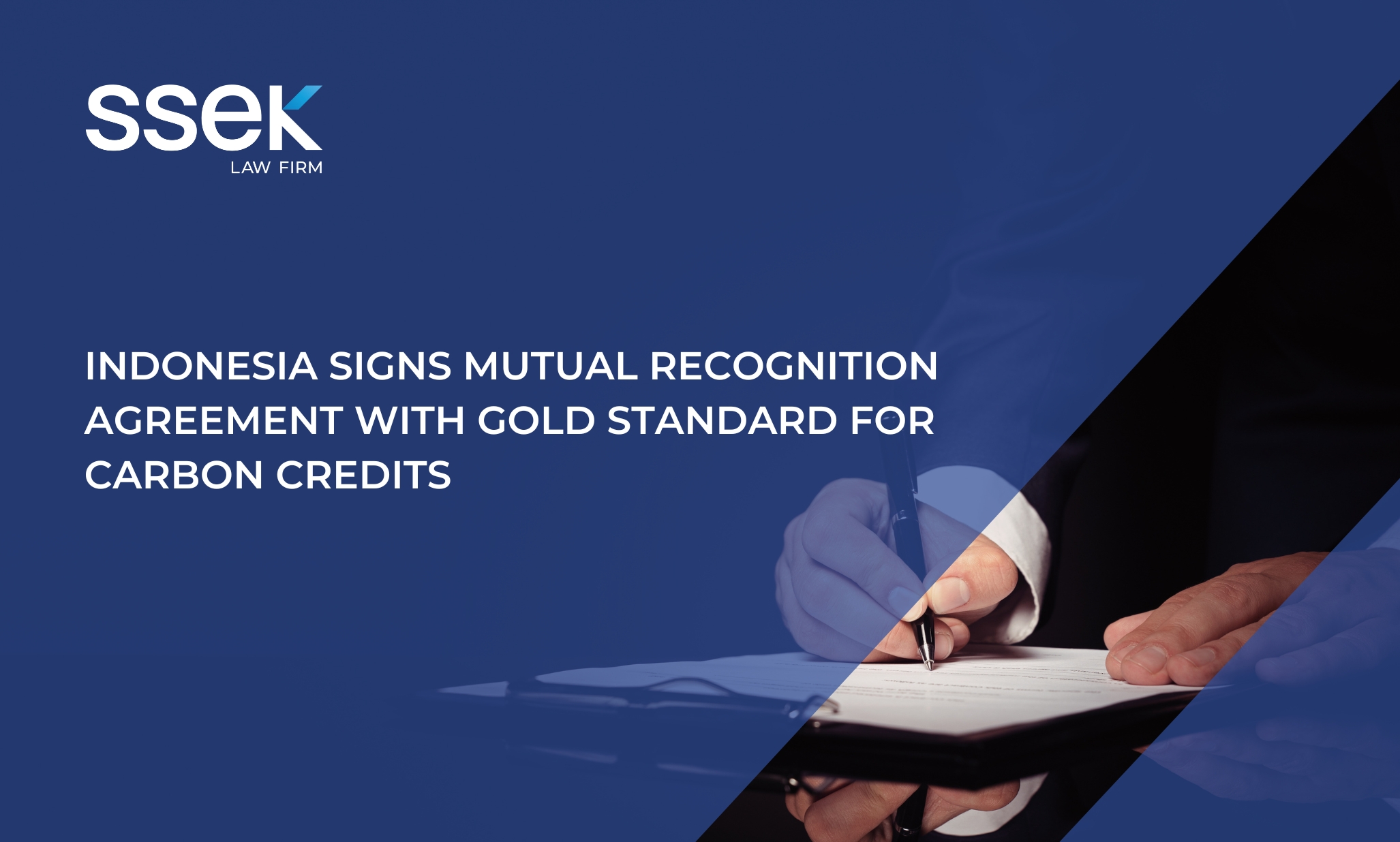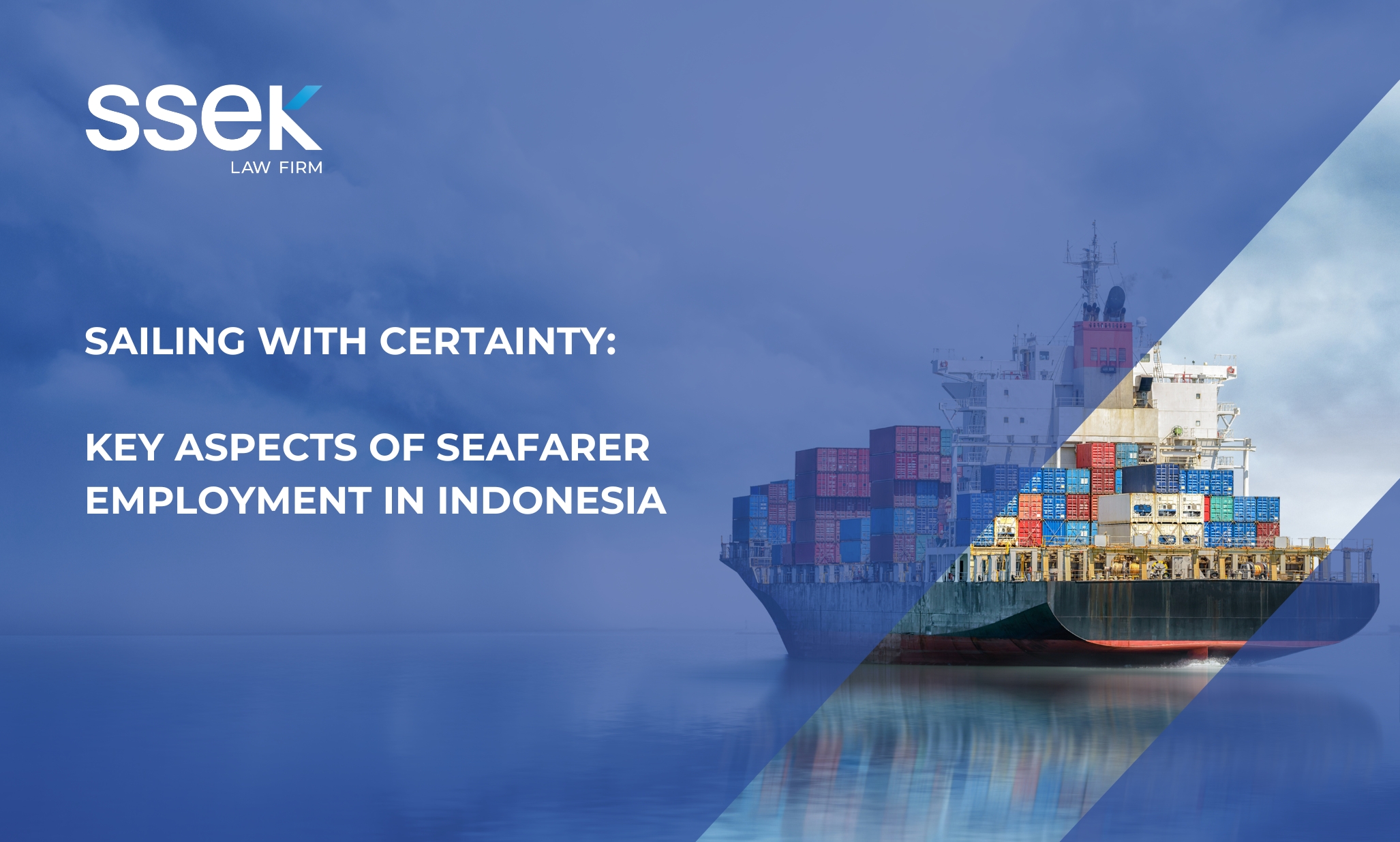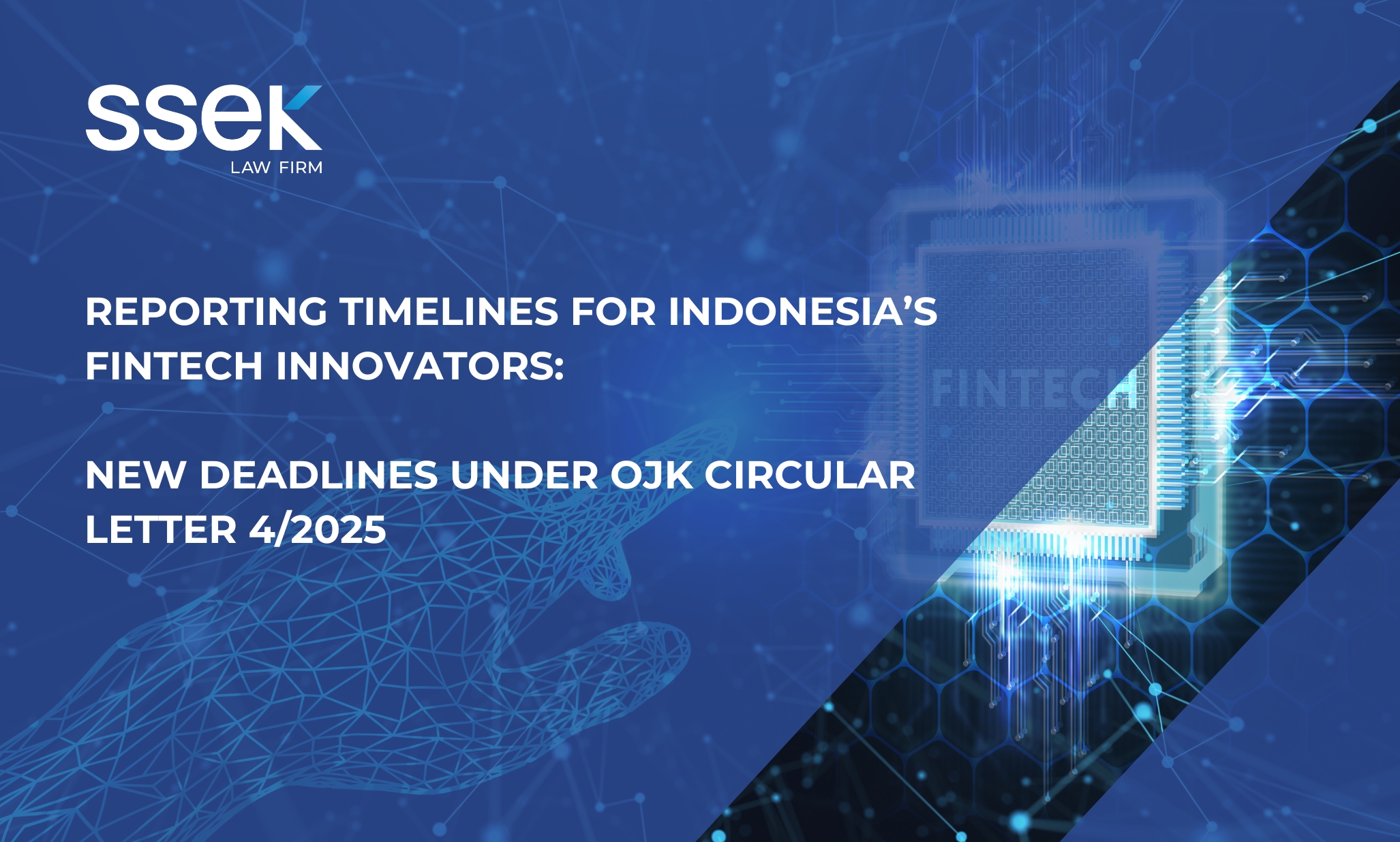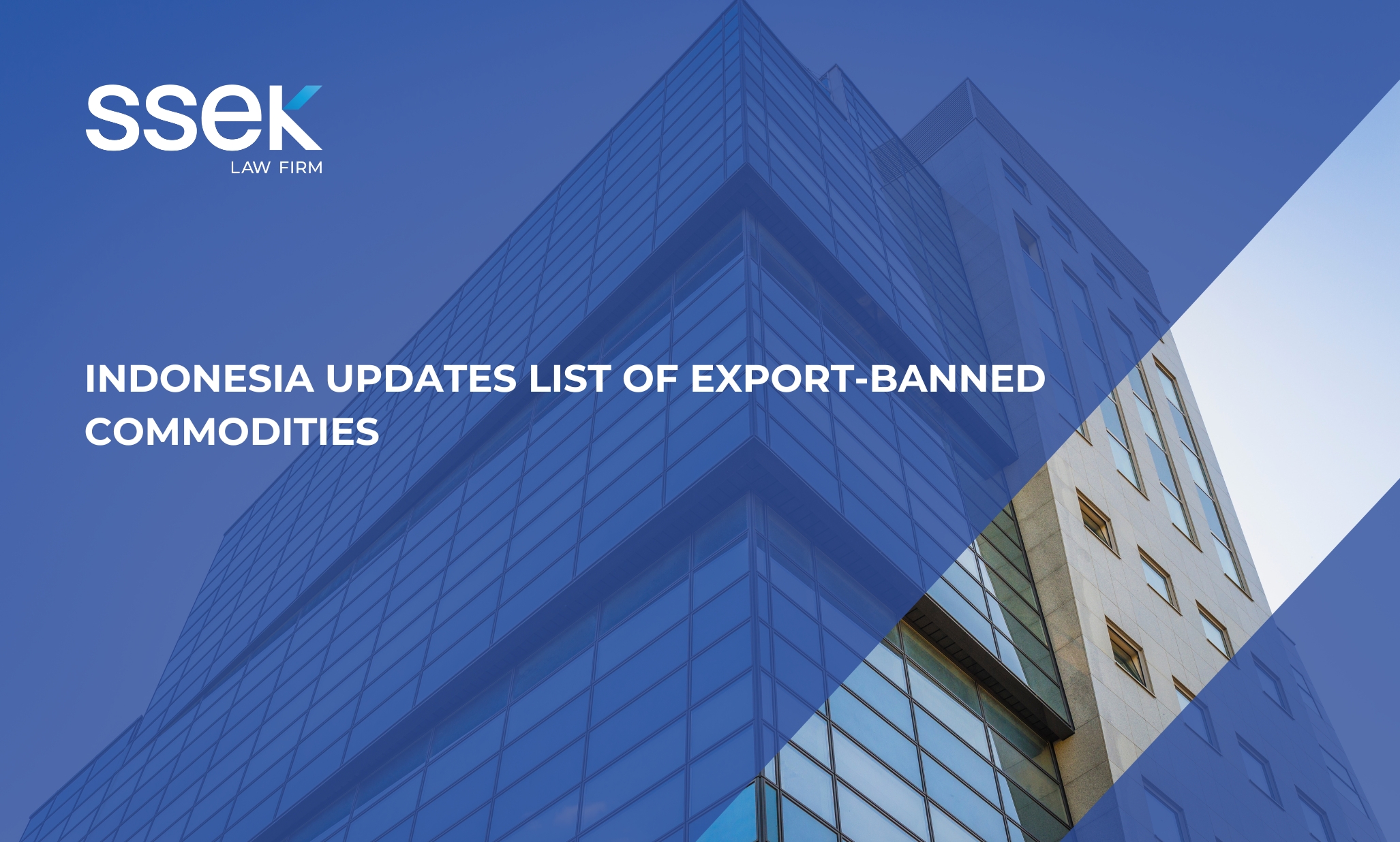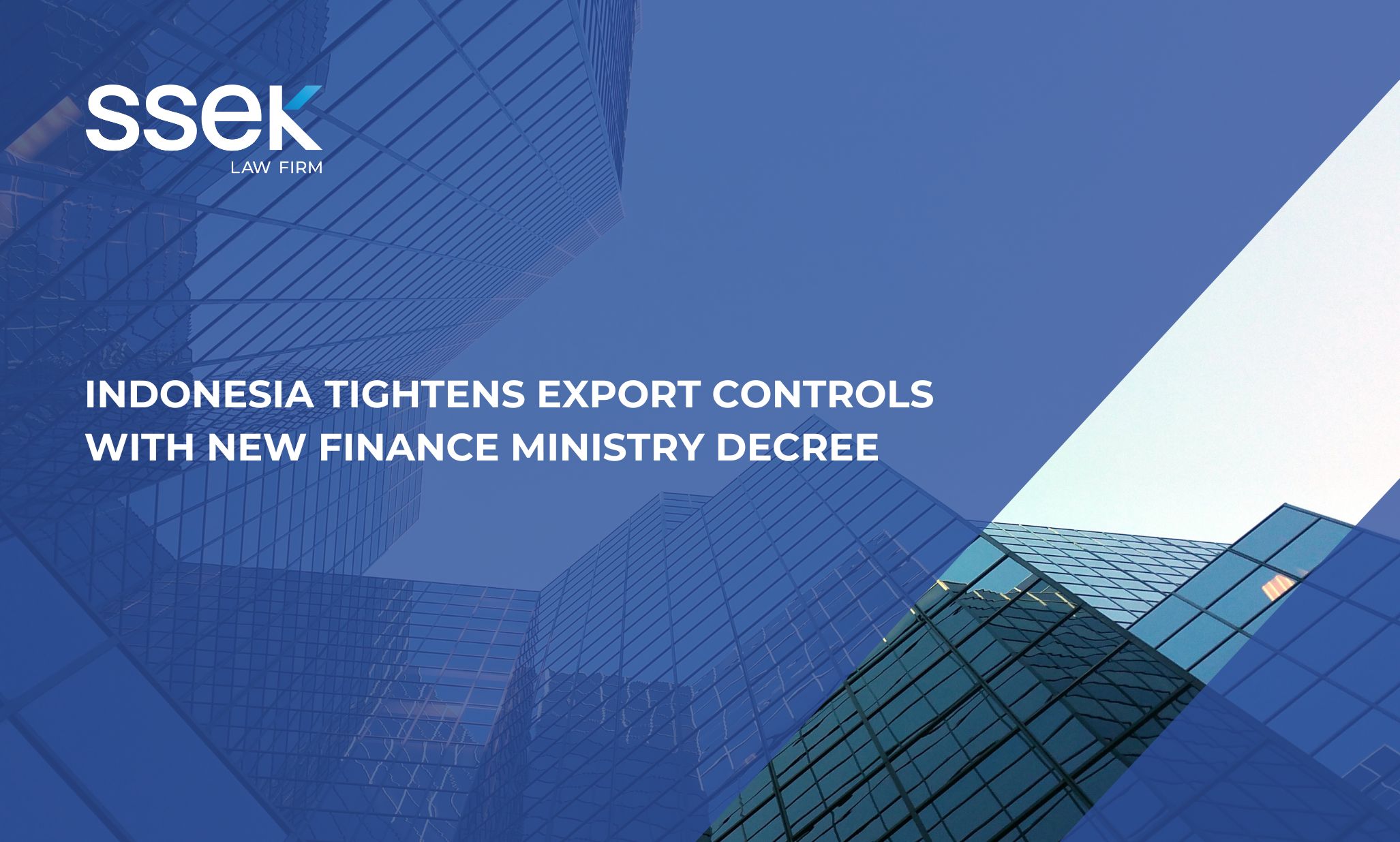

Indonesia's House of Representatives (Dewan Perwakilan Rakyat or "DPR") recently passed into law the trade bill. The new Trade Law is still awaiting the signature of the President.
There are several points of the new Trade Law in particular that should be highlighted and could affect companies in Indonesia. These points are related to (i) domestic and international trade activities, (ii) labeling, (iii) the standardization of trade goods, (iv) e-commerce transactions, (v) international trade security for exports and imports, (vi) export business facilities, (vii) warehouse registration, and (viii) the requirement for business service providers to have competent technical personnel.
The new Trade Law does not provide specific requirements or detailed information on the above key points. We will have to wait for the implementing regulations to be issued by the relevant government institutions for such detailed information.
There is a reference in the new Trade Law that the Indonesian Government may intervene in the Indonesian market and in international trade activities to protect national interests and boost the domestic market. In addition, for the purpose of strengthening the domestic market, the central government, regional governments, and/or related institutions will make an effort to increase the use of domestic products. This could affect the business activities of importers and manufacturers that use imported products for their raw materials.
Furthermore, the new Trade Law provides the Government the means to protect Indonesian exporters against accusations from any export destination country. It provides procedures to protect domestic producers, giving the Indonesian Government the power to impose import duties, antidumping mechanisms, or quotas on imported products deemed to be harming or causing losses to Indonesian producers. The new law does not provide details on how potential losses by Indonesian producers will be determined.
The Ministry of Trade will further stipulate any import duties, anti-dumping mechanisms, and/or quotas. Almost all of the provisions under the new Trade Law will be further regulated by way of implementing regulations. Such implementing regulations are to be issued within two years of the promulgation date of the law, and these implementing regulations will provide further detail on how the law will be implements and its effect on business.
Last, the new Trade Law will repeal and replace:
- Provisions on trade under the 1934 Bedrijfsreglementerings Ordonnantie;
- Law No. 10 of 1961 regarding the Affirmation of Government Regulation in Lieu of Law No. 1 of 1961 regarding the Trading Goods as Law;
- Government Regulation in Lieu of Law No. 8 of 1962 regarding the Supervised Trading of Goods; and
- Law No. 11 of 1965 regarding the Affirmation of Government Regulation in Lieu of Law No. 5 of 1962 on the Amendment of Government Regulation in Lieu of Law No. 2 of 1960 regarding Warehouses as Law.
This publication is intended for informational purposes only and does not constitute legal advice. Any reliance on the material contained herein is at the user's own risk. You should contact a lawyer in your jurisdiction if you require legal advice. All SSEK publications are copyrighted and may not be reproduced without the express written consent of SSEK.




